38 Seascapes: Romance and Contemplation
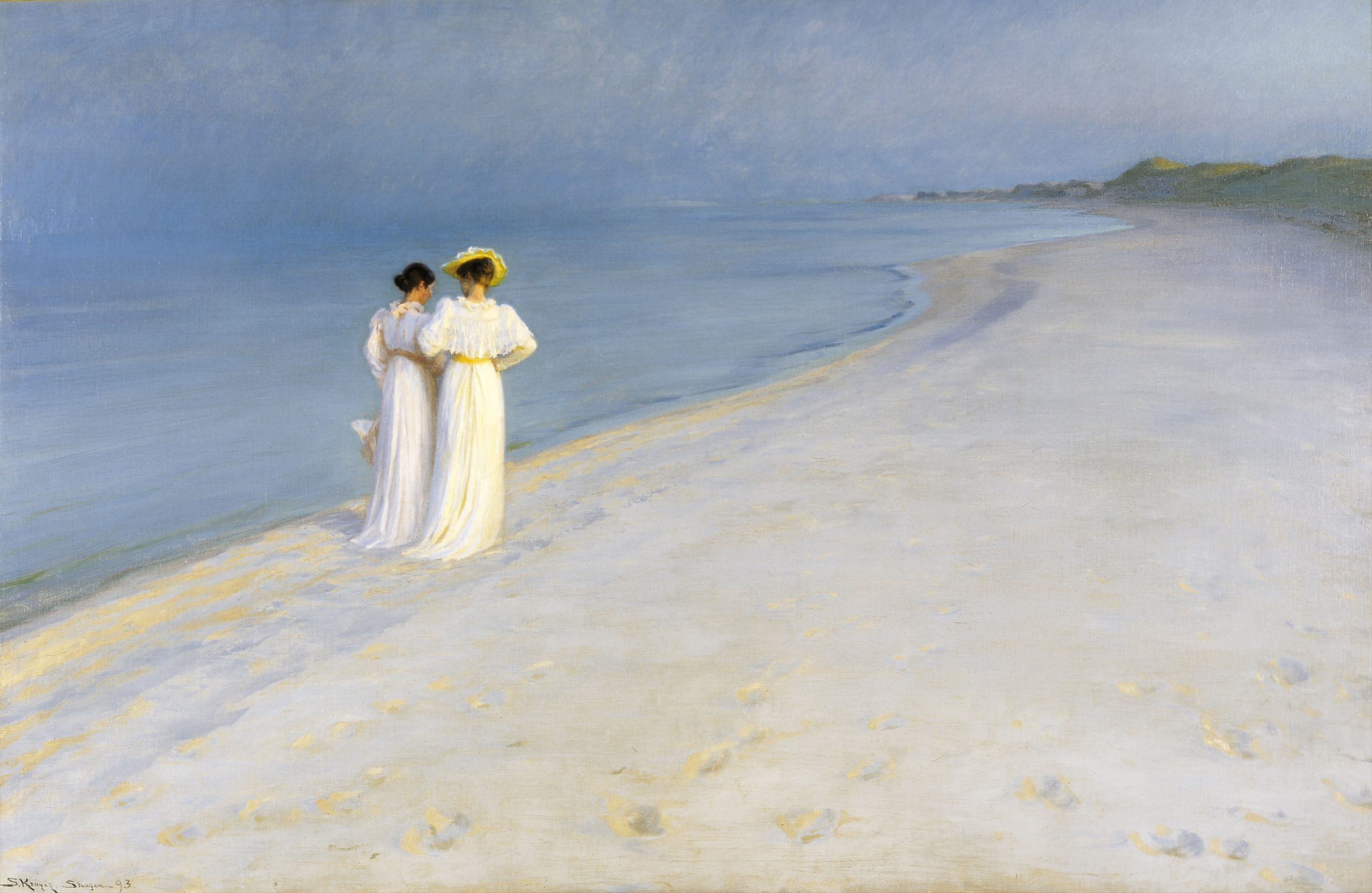
“Meeting at Night” by Robert Browning
The gray sea and the long black land;
And the yellow half-moon large and low;
And the startled little waves that leap
In fiery ringlets from their sleep,
As I gain the cove with pushing prow,
And quench its speed i’ the slushy sand.
Then a mile of warm sea-scented beach;
Three fields to cross till a farm appears;
A tap at the pane, the quick sharp scratch
And blue spurt of a lighted match,
And a voice less loud, through its joys and fears,
Than the two hearts beating each to each!
PARTING AT MORNING
Round the cape of a sudden came the sea,
And the sun looked over the mountain’s rim;
And straight was a path of gold for him,
And the need of a world of men for me.
You can find the complete works of Robert Browning here.
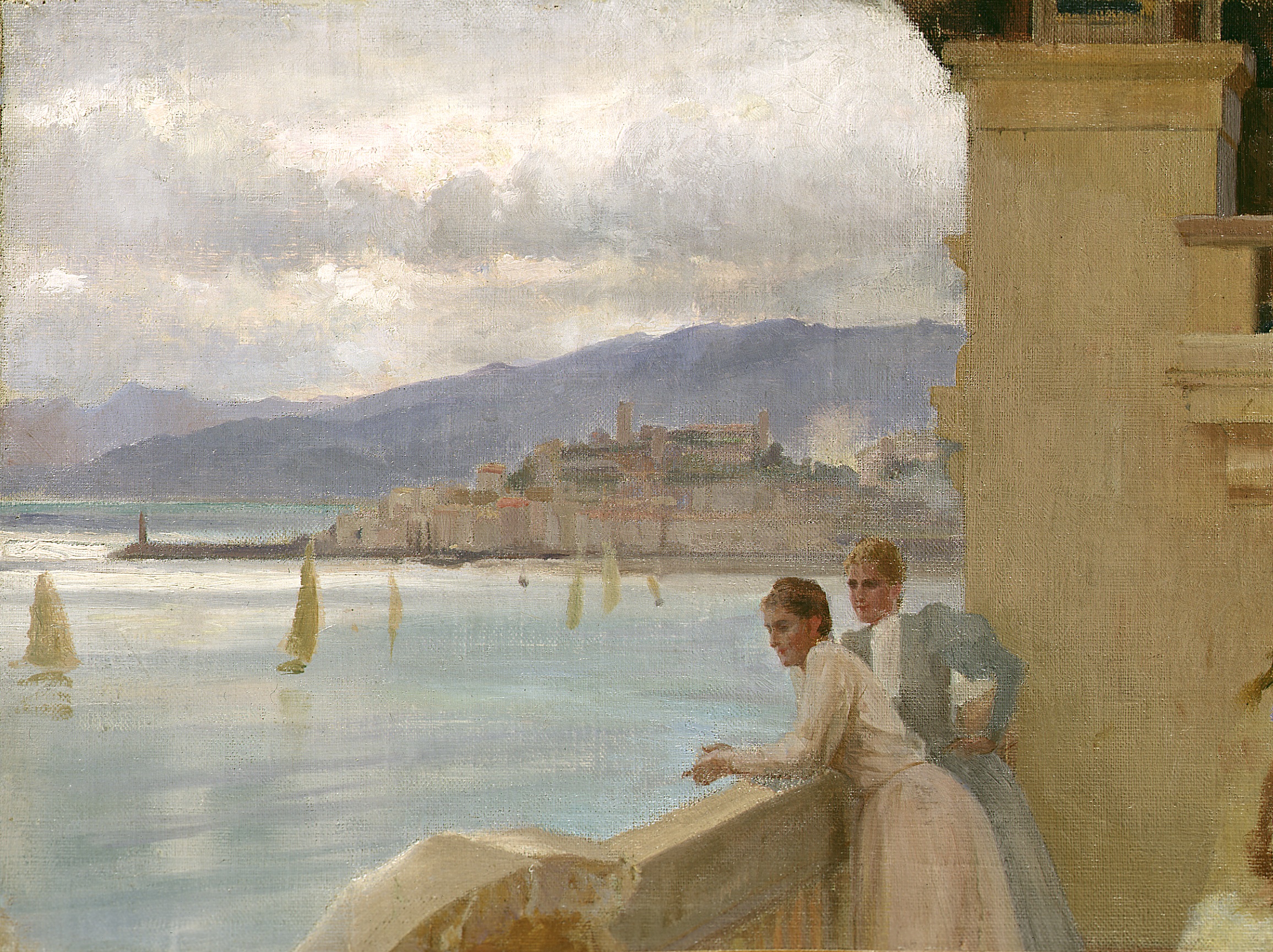
“On The Sea” by John Keats
It keeps eternal whisperings around
Desolate shores, and with its mighty swell
Gluts twice ten thousand caverns, till the spell
Of Hecate leaves them their old shadowy sound.
Often ’tis in such gentle temper found
That scarcely will the very smallest shell
Be mov’d for days from whence it sometime fell,
When last the winds of heaven were unbound.
Oh ye! who have your eye-balls vex’d and tir’d,
Feast them upon the wideness of the Sea;
Oh ye! whose ears are dinn’d with uproar rude,
Or fed too much with cloying melody,–
Sit ye near some old cavern’s mouth, and brood
Until ye start, as if the sea-nymphs quir’d!
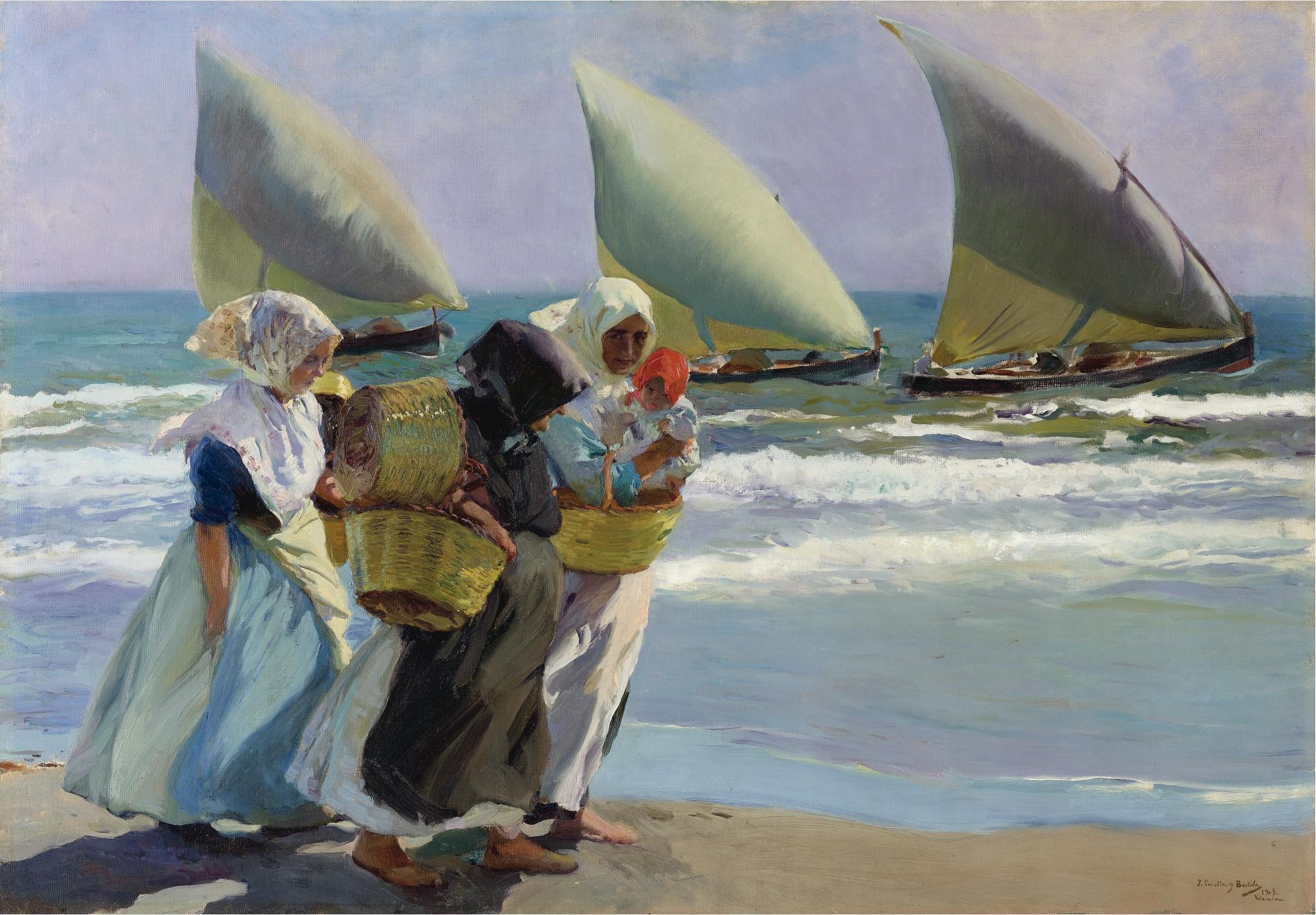
“Adrift! A little boat adrift!” by Emily Dickinson
Adrift! A little boat adrift!
And night is coming down!
Will no one guide a little boat
Unto the nearest town?
So Sailors say — on yesterday —
Just as the dusk was brown
One little boat gave up its strife
And gurgled down and down.
So angels say — on yesterday —
Just as the dawn was red
One little boat — o’erspent with gales —
Retrimmed its masts — redecked its sails —
And shot — exultant on!
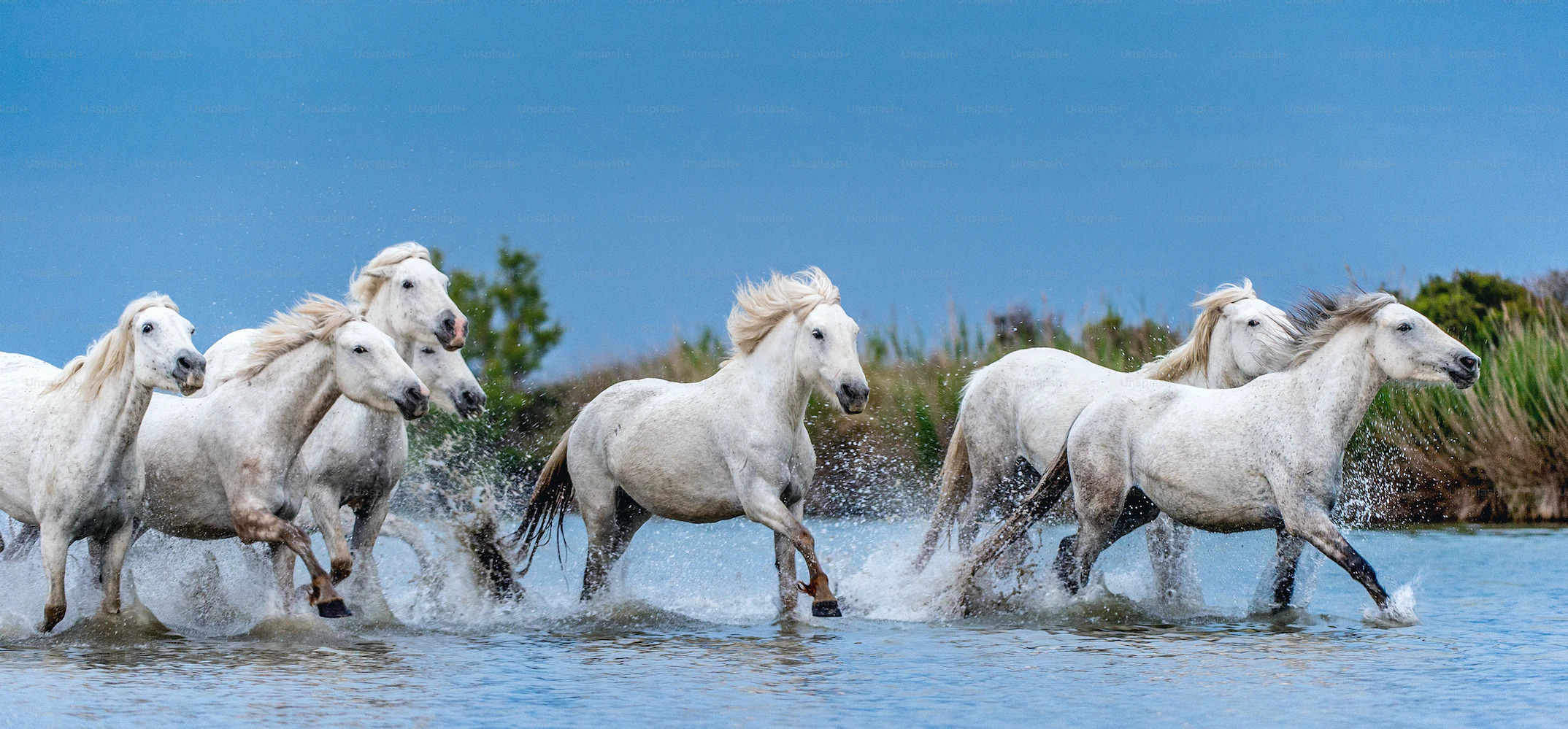
“The Wild Horses of the Camargue” by Roy Campbell
In the grey wastes of dread,
The haunt of shattered gulls where nothing moves
But in a shroud of silence like the dead,
I heard a sudden harmony of hooves,
And, turning, saw afar
A hundred snowy horses unconfined,
The silver runaways of Neptune’s car
Racing, spray-curled, like waves before the wind.
Sons of the Mistral, fleet
As him with whose strong gusts they love to flee,
Who shod the flying thunders on their feet
And plumed them with the snortings of the sea;
Theirs is no earthly breed
Who only haunts the verges of the earth
And only on the sea’s salt herbage feed-
Surely the great white breakers gave them birth.
For when for years a slave,
A horse of the Camargue, in alien lands,
Should catch some far-off fragrance of the wave
Carried far inland from this native sands,
Many have told the tale….
“Sailing to Byzantium” by William Butler Yeats
I
That is no country for old men. The young
In one another’s arms, birds in the trees,
—Those dying generations—at their song,
The salmon-falls, the mackerel-crowded seas,
Fish, flesh, or fowl, commend all summer long
Whatever is begotten, born, and dies.
Caught in that sensual music all neglect
Monuments of unageing intellect.
II
An aged man is but a paltry thing,
A tattered coat upon a stick, unless
Soul clap its hands and sing, and louder sing
For every tatter in its mortal dress,
Nor is there singing school but studying
Monuments of its own magnificence;
And therefore I have sailed the seas and come
To the holy city of Byzantium.
III
O sages standing in God’s holy fire
As in the gold mosaic of a wall,
Come from the holy fire, perne in a gyre,
And be the singing-masters of my soul.
Consume my heart away; sick with desire
And fastened to a dying animal
It knows not what it is; and gather me
Into the artifice of eternity.
IV
Once out of nature I shall never take
My bodily form from any natural thing,
But such a form as Grecian goldsmiths make
Of hammered gold and gold enamelling
To keep a drowsy Emperor awake;
Or set upon a golden bough to sing
To lords and ladies of Byzantium
Of what is past, or passing, or to come.
You can listen to the audio of this poem read by Denys Hawthorne here.
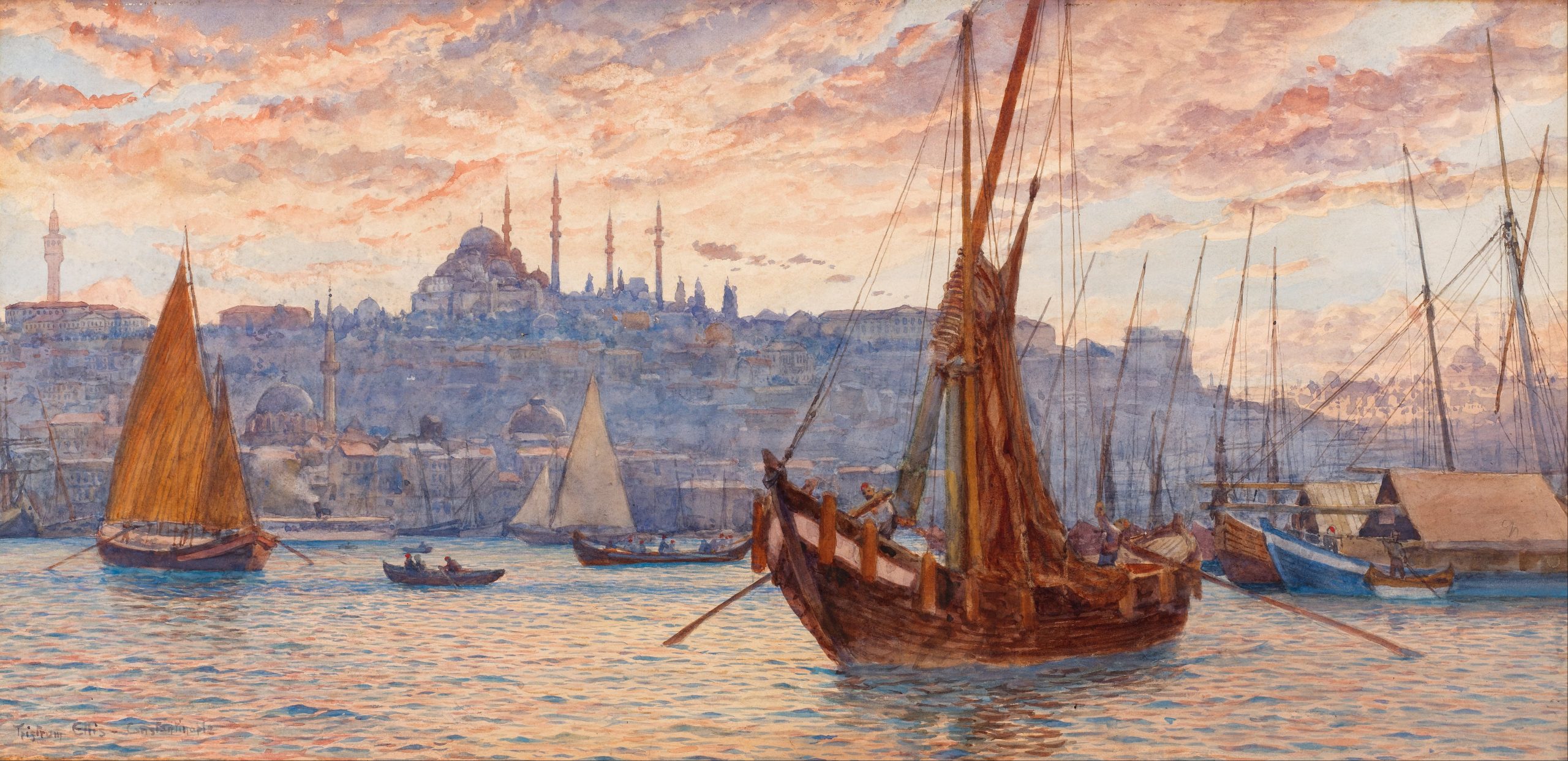
For centuries the Atlantic and other oceans have been crossed by trade routes long known to seafaring men and oceanographers. Faraway destinations became symbolic of adventure, escape, mystery, and spiritual fulfillment for great poets, novelists, playwrights, and artists.
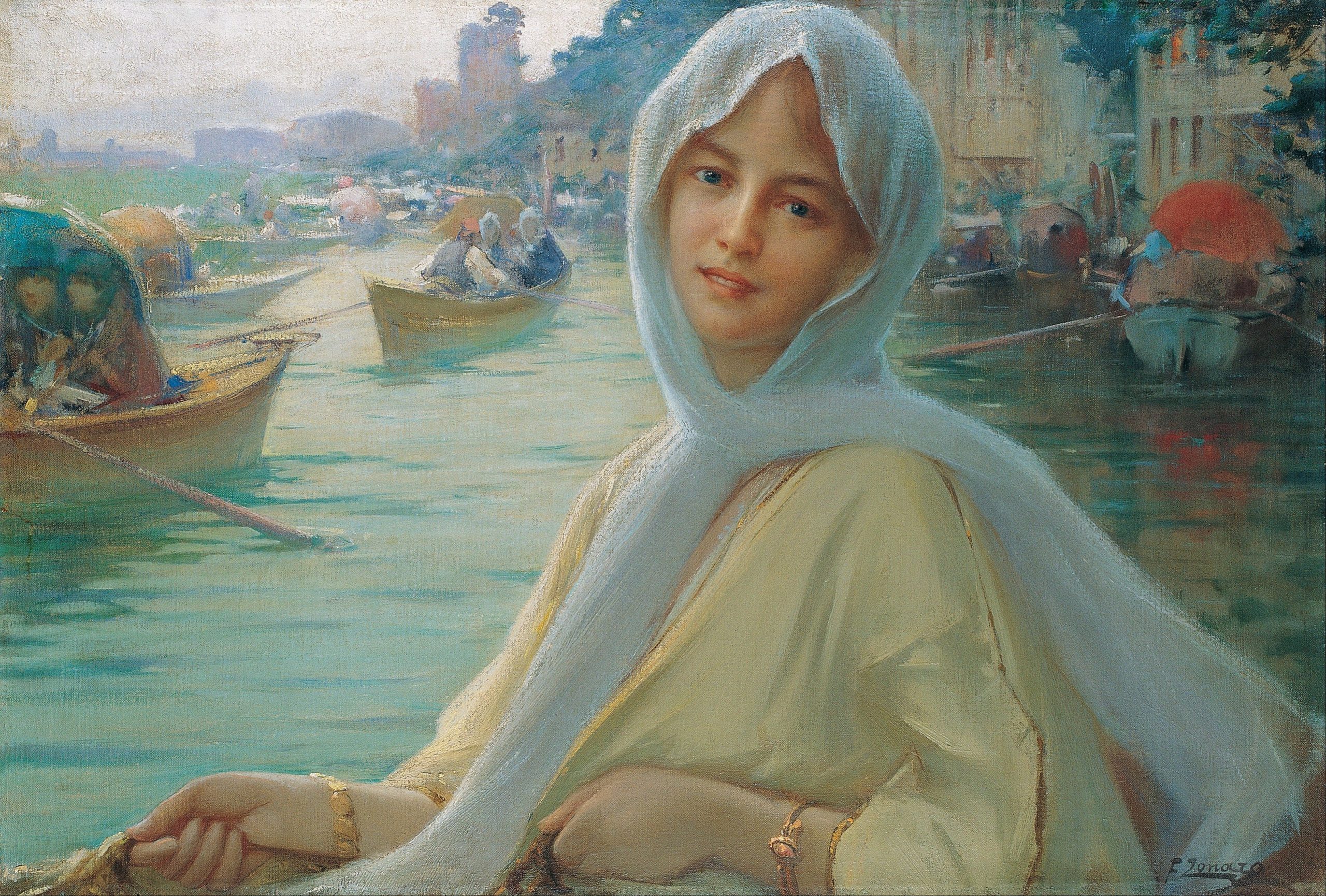
“Ships that pass in the night, and speak each other in passing, only a signal shown, and a distant voice in the darkness So on the ocean of life, we pass and speak one another, only a look and a voice, then darkness again and a silence.” (Henry Wadsworth Longfellow, Tales of a Wayside Inn, 1863)
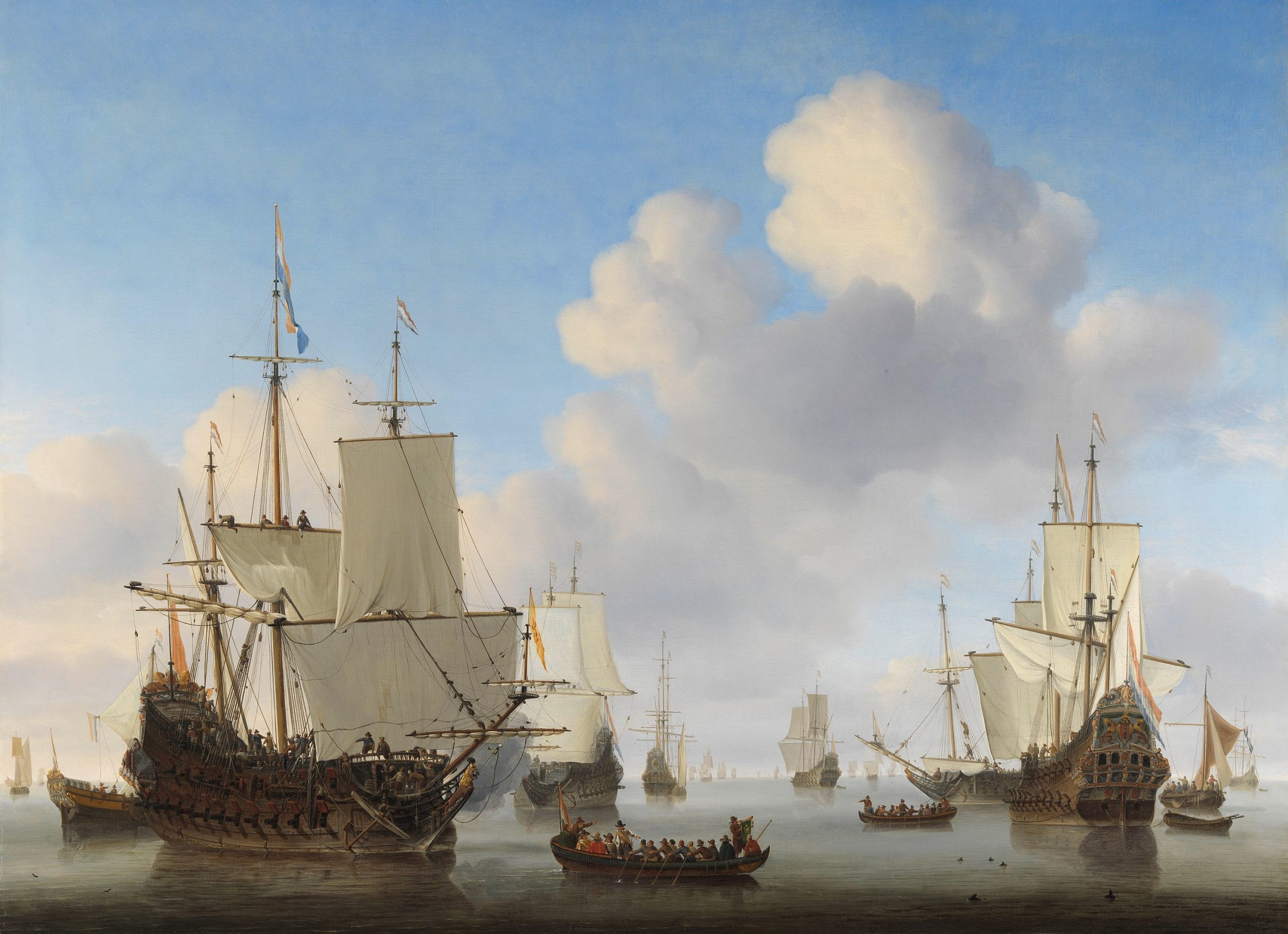
Inspirational Seascapes
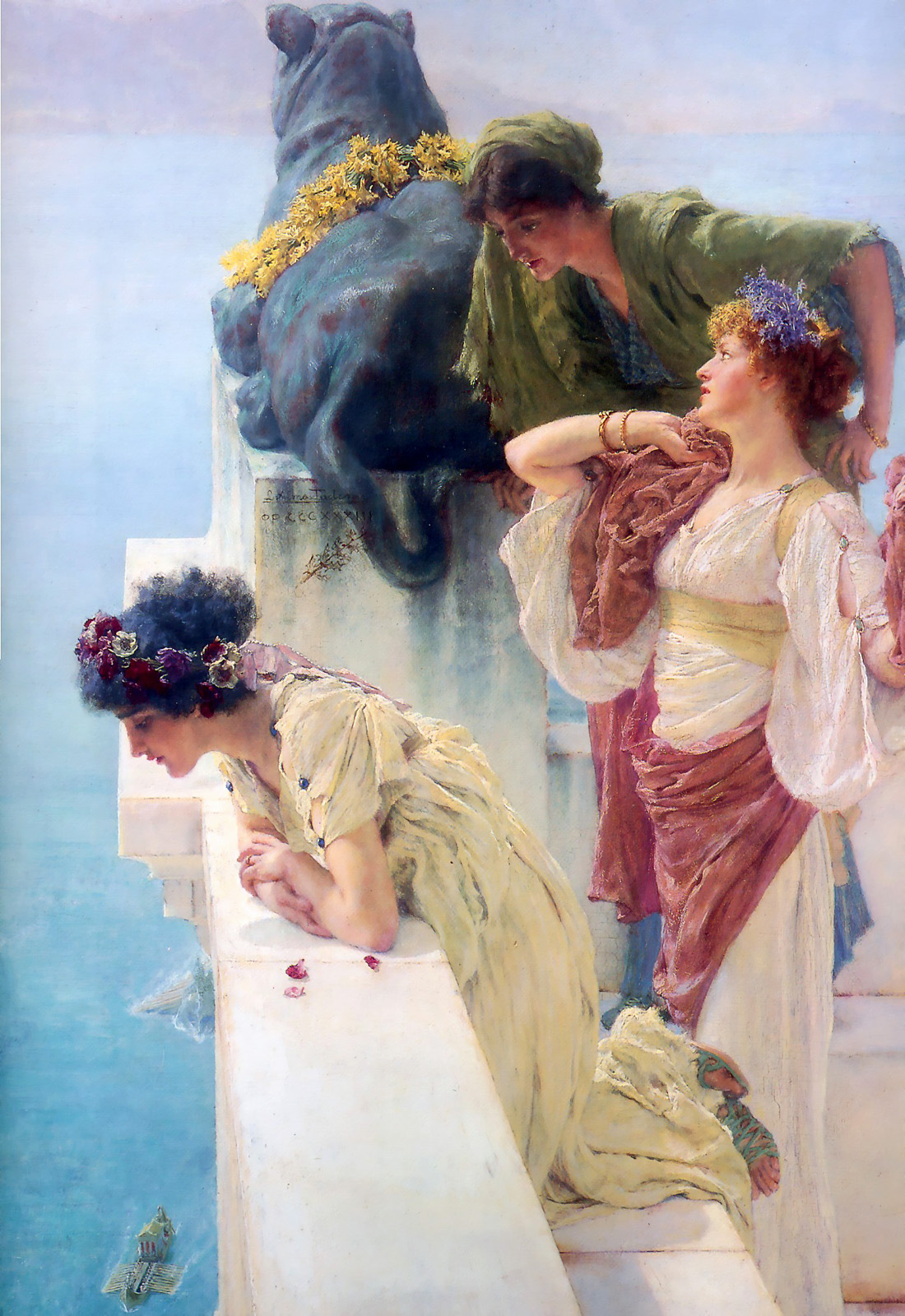
Excerpt from “The Borough” by George Crabbe
Turn to the watery world! But who to thee
(A wonder yet unview’d) shall paint—the Sea?
Various and vast, sublime in all its forms,
When lull’d by zephyrs, or when roused by storms,
Its colours changing, when from clouds and sun
Shades after shades upon the surface run;
Embrown’d and horrid now, and now serene,
In limpid blue, and evanescent gree;
And oft the foggy banks on ocean lie,
Lift the fair sail, and cheat th’experienced eye.
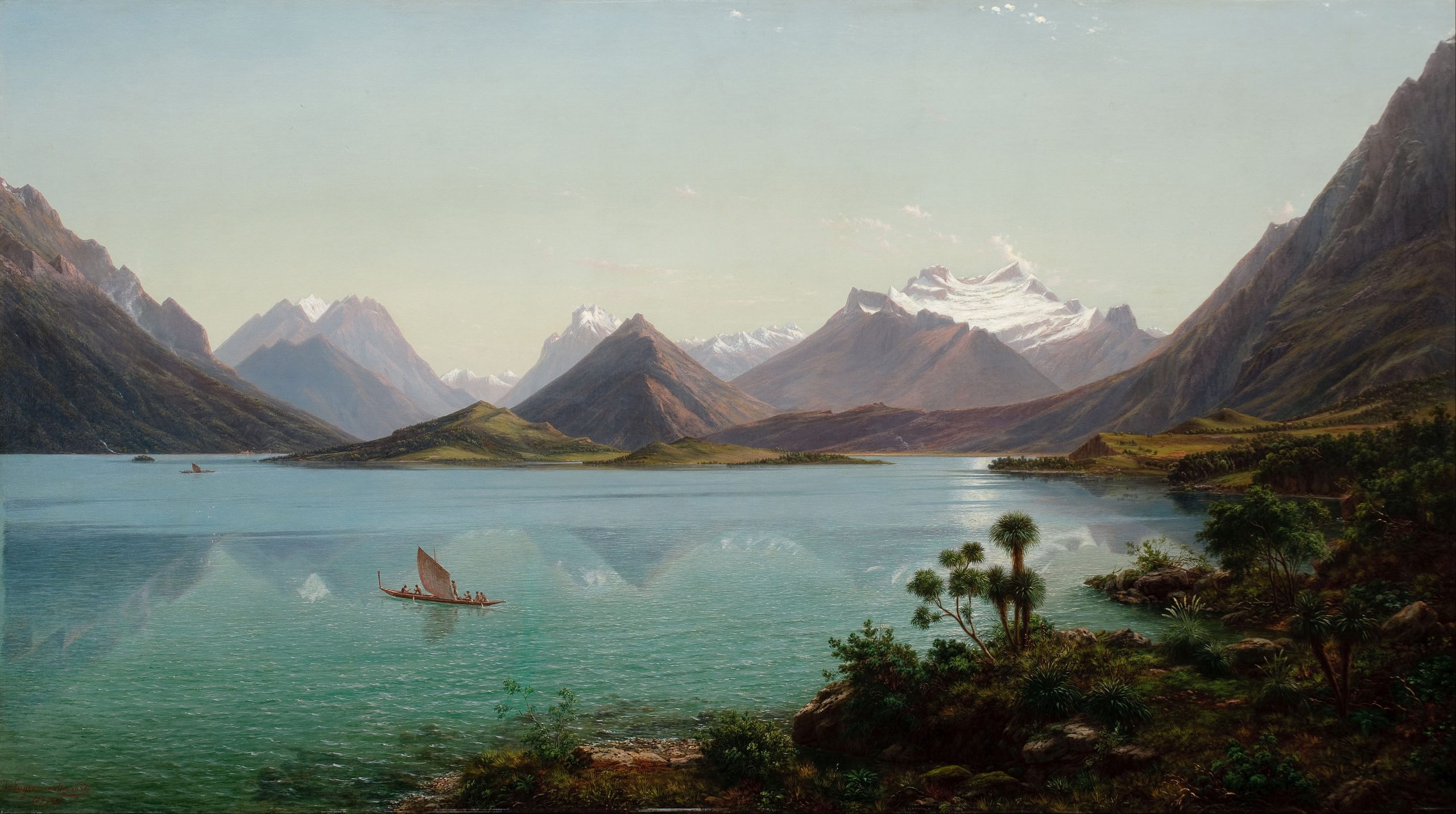
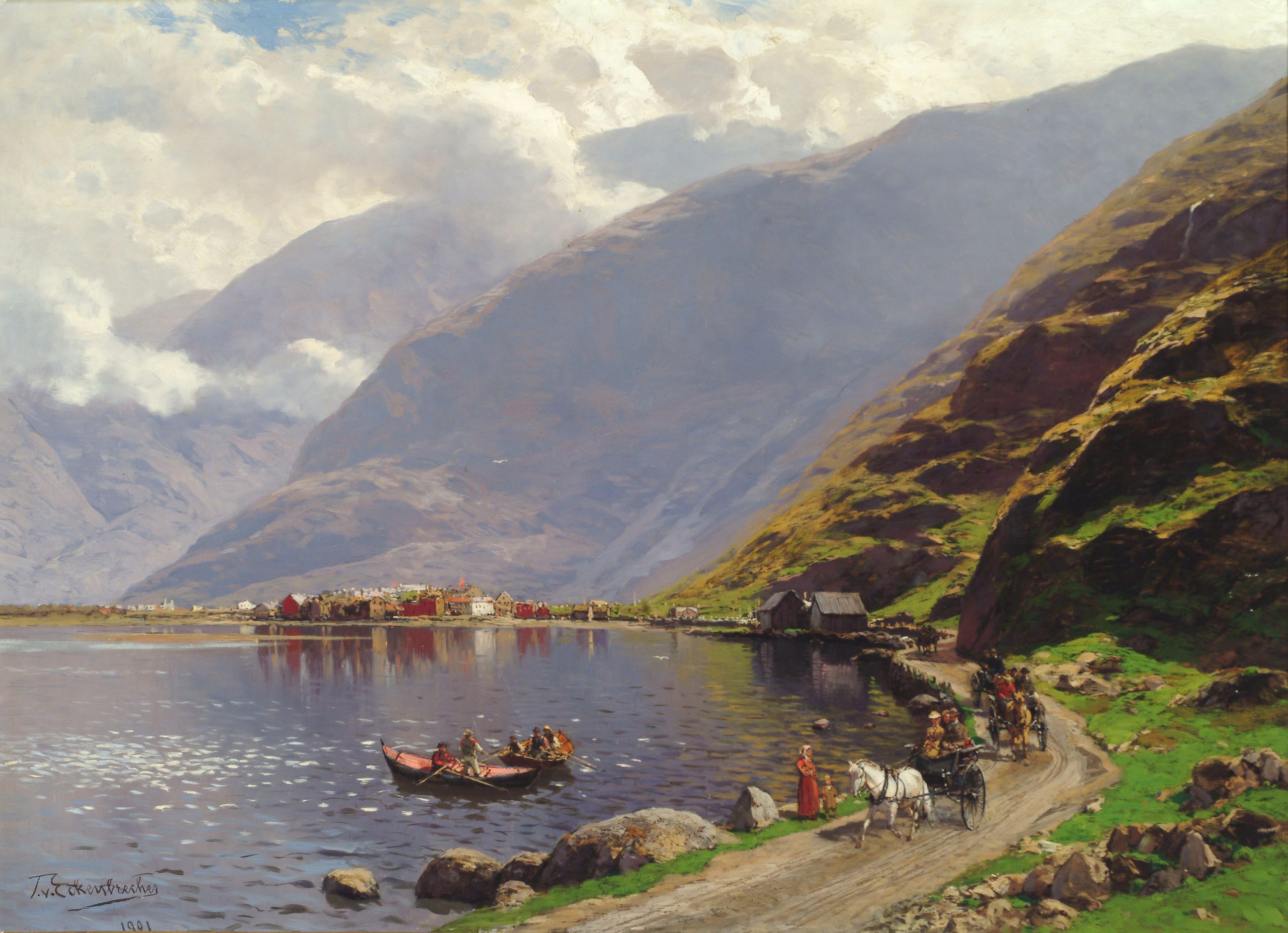
You can find more poems about ships and seas here.
“By The Seaside: The Evening Star” by Henry Wadsworth Longfellow
Lo! in the painted oriel of the West,
Whose panes the sunken sun incarnadines,
Like a fair lady at her casement, shines
The evening star, the star of love and rest!
And then anon she doth herself divest
Of all her radiant garments, and reclines
Behind the sombre screen of yonder pines,
With slumber and soft dreams of love oppressed.
O my belovd, my sweet Hesperus!
My morning and my evening star of love!
My best and gentlest lady! even thus,
As that fair planet in the sky above,
Dost thou retire unto thy rest at night,
And from thy darkened window fades the light.
“The Tide Rises, the Tide Falls” by Henry Wadsworth Longfellow
The tide rises, the tide falls,
The twilight darkens, the curlew calls;
Along the sea-sands damp and brown
The traveller hastens toward the town,
And the tide rises, the tide falls.
Darkness settles on roofs and walls,
But the sea, the sea in the darkness calls;
The little waves, with their soft, white hands,
Efface the footprints in the sands,
And the tide rises, the tide falls.
The morning breaks; the steeds in their stalls
Stamp and neigh, as the hostler calls;
The day returns, but nevermore
Returns the traveller to the shore,
And the tide rises, the tide falls.

